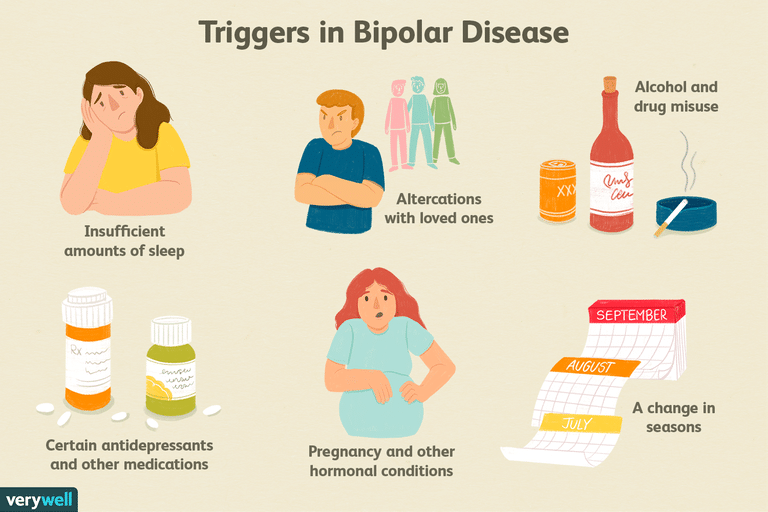
Everybody goes through mood changes depending on life seasons. One minute you can be ecstatic, and the next going through unfathomable blues because life happened. However, this fleeting whirlwind of moods is incomparable to bipolar disorder. Normal mood swings can be easily managed and controlled, but bipolar requires the services of a psychiatrist.
Bipolar oscillates between two extremes – manic highs and depressive lows. The episodes are intense, intrusive, and disruptive. Shifts toward mania lead to high energy behavior like impulsive spending, sporadic decision-making like quit a job at a whim, or feeling well-rested while battling insomnia. On the other hand, the depressive episode is characterized by misery, gloom, helplessness, and inactivity.
Bipolar disorder treatment incorporates both medicine and therapy. Medication is essential in regulating mood and emotions. Typical medication includes mood stabilizers, antidepressants, antipsychotics, among others. Counseling involves sessions with a therapist to help you understand and manage the disorder.
Why a Counselor is Important in Treating Bipolar
Bipolar disorder is a lifelong illness, making therapy long-term. The cause of the disorder is inherently a fault of in the genes. It manifests biochemically as an imbalance of neurotransmitters. Neurotransmitters are biomolecules that facilitate nerve transmission. The biomolecules are on the higher extreme during mania and deficient in the depressive state.
While medicine helps in balancing these biochemicals, it does nothing on triggers and behavior. A therapist empowers you to take control of your mental state. Their expertise and resources are indispensable in prognosis and treatment.
The counselor enables you to identify, avoid, and manage stressors. Knowing the ins and outs of the disorder makes the episodes manageable and sometimes avoidable. Additionally, through therapy, you learn to identify and control problematic thoughts, emotions, and behaviors.
The therapist also helps you develop new behaviors, thinking patterns and control your emotions. Most importantly, a counselor provides long-term support through the course of the condition for you and your loved ones. You do not have to go through bipolar disorder alone. Find help today.
Leave a Reply